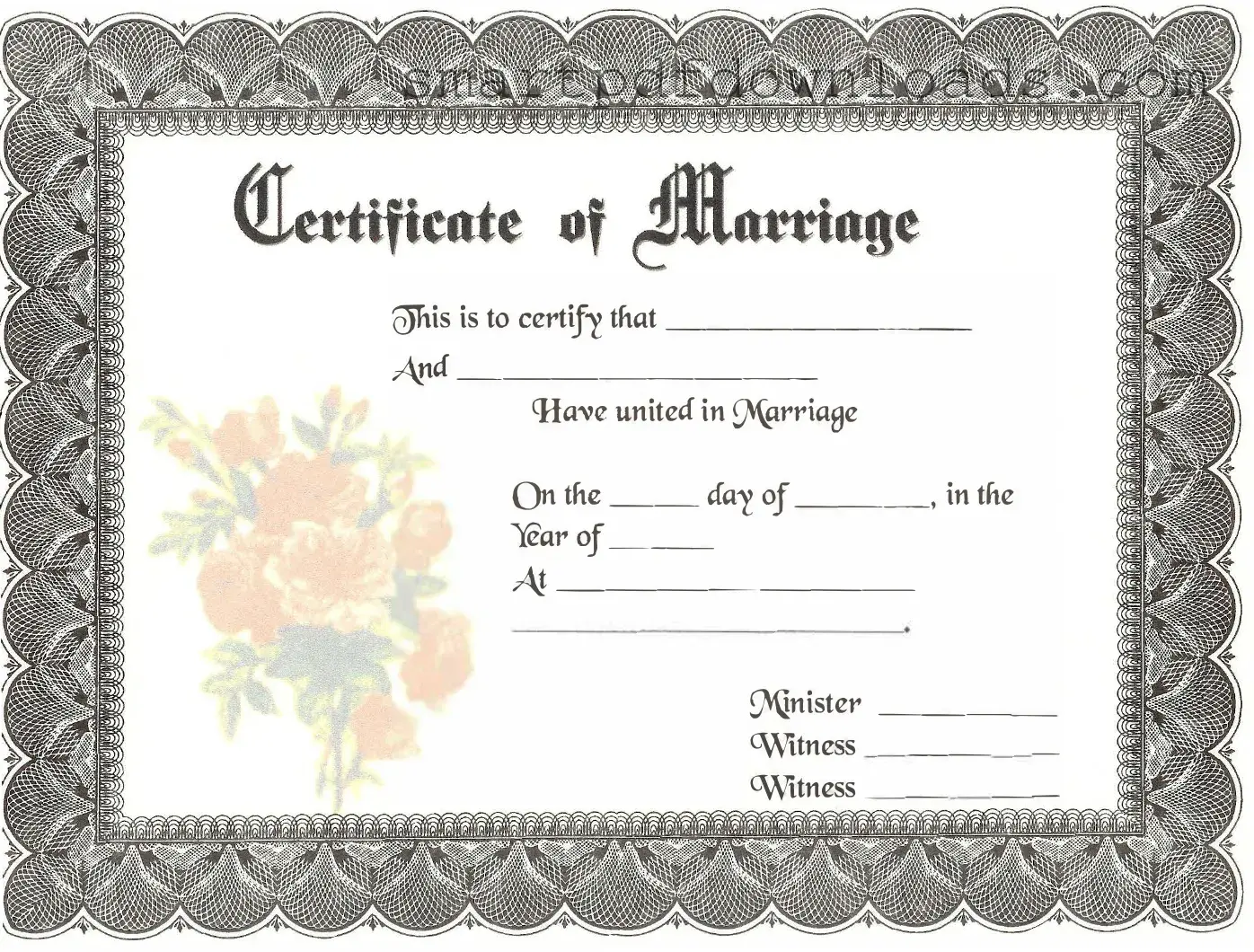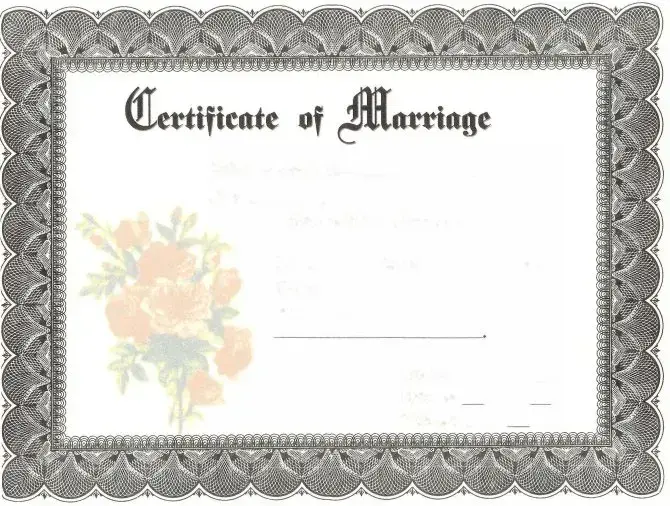Marriage Certificate Form
A Marriage Certificate form is an official document that records the union of two individuals in marriage. This form serves as legal proof of the marriage and is often required for various purposes, such as changing one's name or applying for spousal benefits. Understanding the requirements and processes associated with obtaining this certificate is essential for couples planning to tie the knot.
Edit Marriage Certificate Online

Marriage Certificate Form
Edit Marriage Certificate Online

Edit Marriage Certificate Online
or
⇓ PDF File
Finish the form and move on
Edit Marriage Certificate online fast, without printing.
